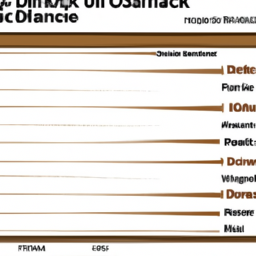Are Investment Accounts FDIC-Insured?
With news of the Federal Deposit Insurance Corporation (FDIC) taking over Silicon Valley Bank (SVB) and the $175 billion in customer accounts that are now under the FDIC’s watch, it’s natural for investors to wonder if their investments are FDIC-insured.
The FDIC is an independent government agency created by the U.S. Congress in 1933. It is responsible for insuring deposits in banks and other financial institutions. The FDIC does not insure investments, but does insure deposits up to $250,000 per depositor, per insured bank. This means that any deposits you make in an FDIC-insured bank are protected up to the $250,000 maximum.
When it comes to investments, while the FDIC does not provide insurance coverage, there are certain investments that do come with some level of protection. These include government-backed securities, such as U.S. Treasury bills and CDs, which are insured up to $250,000 per depositor, per insured bank.
It is important to note that while some investments, such as stocks and bonds, are not FDIC-insured, they are still considered safe investments. Stocks and bonds are issued by companies and governments, respectively, and are considered to be low-risk investments.
In addition, many investors choose to invest in high-yield savings accounts and CDs. These accounts are FDIC-insured up to $250,000 per depositor, per insured bank. This means that even if the bank fails, you can still get your money back, up to the maximum coverage amount.
Another way to protect your investments is to make sure that the financial institution you are investing with is FDIC-insured. The FDIC website provides a list of all FDIC-insured banks, so you can easily research any institution you are considering investing with.
Finally, it is important to remember that the FDIC does not insure investment accounts. If you are investing in stocks, bonds, mutual funds, and other securities, you should be aware that these are not FDIC-insured investments. Instead, you should research the company or government issuing the securities and make sure that you understand the risk associated with the investment.
